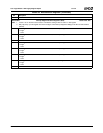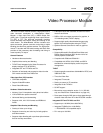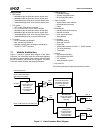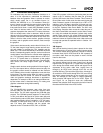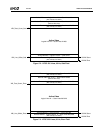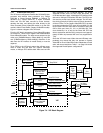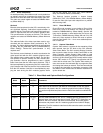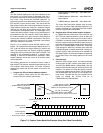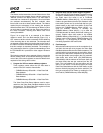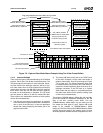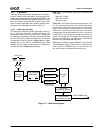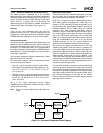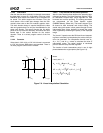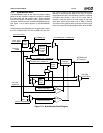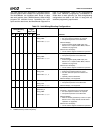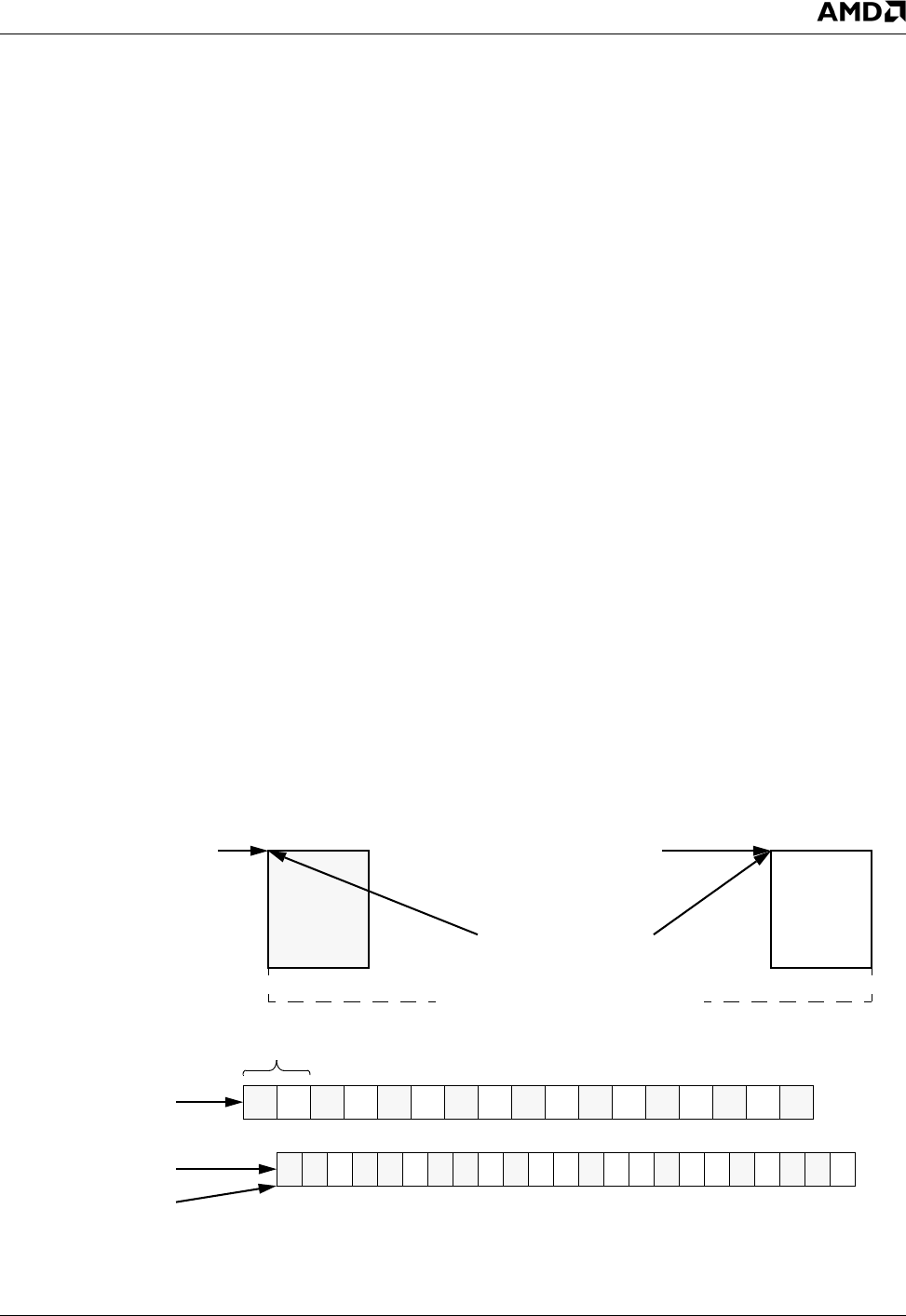
AMD Geode™ SC1200/SC1201 Processor Data Book 317
Video Processor Module
32579B
Bob
The Bob method displays the odd frame followed by the
even frame. If a full-scale image is displayed, each line in
the odd and even field must be vertically doubled (see Sec-
tion 7.2.2.5 "2-Tap Vertical and Horizontal Upscalers" on
page 322) because each odd and each even field only con-
tain one-half a frames worth of data. This means that the
Bob method reduces the video image resolution, but has a
higher effective refresh rate. If there is a change of refresh
rate from the VIP block to the display device, then a field
will sometimes be displayed twice. The advantage of this
method is that the process is simple as only half the data is
transmitted from the GX1 module’s Video Frame Buffer to
the Video Processor per a given amount of time, therefore
reducing the memory bandwidth requirement. The disad-
vantage is that there are some observable visual effects
due to the reduction in resolution.
Figure 7-5 is an example of how the Bob method is per-
formed. The example assumes that the display device is a
CRT at 85 Hz refresh and single buffering is used for the
data. The example does not assume anything regarding
scaling that may be performed in the Video Processor. The
example is only presented to allow for a general under-
standing of how the SC1200/SC1201 processor’s video
support hardware works and not as an all-inclusive state-
ment of operation.
The following procedure is an example of how to create a
Bob method. This example assumes single buffering in the
GX1 module’s video frame buffer. The Video Processor
registers that control the VIP bus master only need to be
initialized.
1) Program the VIP bus master address registers.
Three registers control where the VIP video data is
stored in the GX1 module’s frame buffer:
– F4BAR2+Memory Offset 20h – Video Data Odd
Base Address
– F4BAR2+Memory Offset 24h – Video Data Even
Base Address
– F4BAR2+Memory Offset 28h – Video Data Pitch
The Video Data Even Base Address must be sepa-
rated from the Video Data Odd Base Address by at
least the field data size. The Video Data Pitch register
must be programmed to 00000000h.
2) Program other VIP bus master support registers.
In F4BAR2+Memory Offset 00h, make sure that the
VIP FIFO bus request threshold is set to 32 bytes (bit
22 = 1) and that the Video Input Port mode is set to
CCIR-656. An interrupt needs to be generated so that
the GX1 module’s video frame buffer pointer can flip to
the field that has completed transfer to the video frame
buffer. So in F4BAR2+Memory Offset 04h, enable the
Field Interrupt bit. Auto-Flip is normally set to allow the
CCIR-656 Decoder to identify which field is being pro-
cessed. Capture video data needs to be enabled and
Run Mode Capture is set to Start Capture at beginning
of next field. Data is now being captured to the frame
buffer.
3) Field Interrupt.
When the field interrupt occurs, the interrupt handler
must program the GX1 module’s video buffer start off-
set value (GX_BASE+Memory Offset 8320h) with the
address of the field that was just received from the VIP
interface. This action will cause the display controller
to ping-pong between the two fields. The new address
will not take affect until the start of a new display con-
troller frame. The field that was just received can be
known by reading the Current Field bit at
F4BAR2+Memory Offset 08h[24].
Figure 7-5. Capture Video Mode Bob Example Using One Video Frame Buffer
Video Data Odd Base Video Data Even Base
DC_VID_ST_OFFSET
Odd
Field
Even
Field
GX1 Module’s Video Frame Buffer
1234567891011121314151617
1234 67891011121314151617181920 2223
Capture video fill
Video subsystem
85 frames per second
5
5
21
30 frames per second
(F4BAR2+Memory Offset 24h)
Address not changed during runtime
(GX_BASE+Memory Offset 8320h)
Ping-pongs between the two buffers during runtime
(F4BAR2+Memory Offset 20h)
Address not changed
during runtime
Buf #1
sequence
empty sequence



